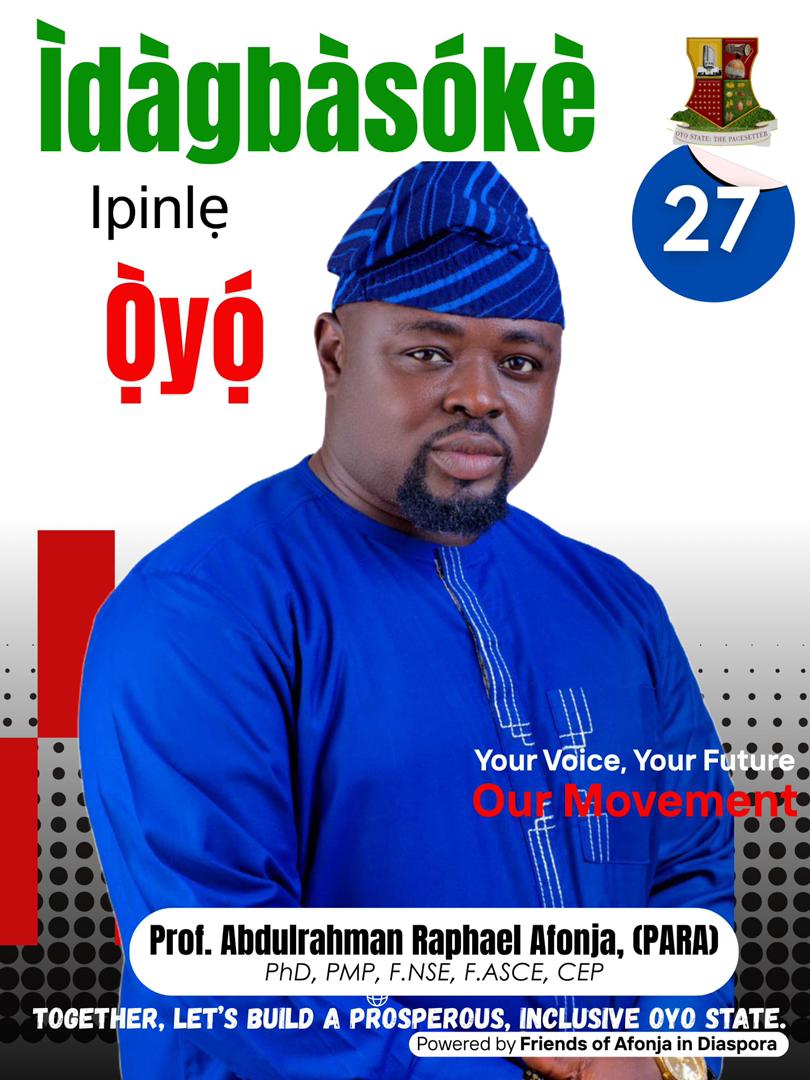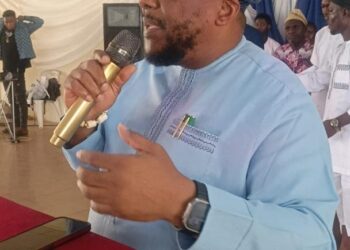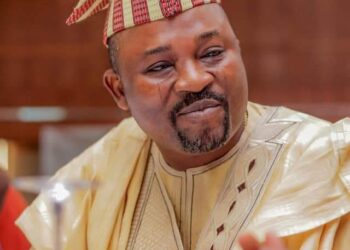When Governor Seyi Makinde took office in 2019, many viewed his emergence with skepticism. A technocrat with limited ties to Oyo’s traditional political power structures, his rise was seen as a political experiment — one not expected to last. Yet, six years down the line, Makinde hasn’t just endured; he has transformed governance in Oyo State and positioned the People’s Democratic Party (PDP) as the dominant force for years to come.

This is not political sentiment or wishful thinking. It is a grounded observation, backed by tangible outcomes and the sentiments of everyday citizens. Under Governor Makinde, the PDP has evolved from a political party into a reliable institution of governance — and that transformation is the foundation of its future electoral strength.
Makinde’s leadership has proven that political authority can be used to serve the people. In a country where education has often been reduced to slogans, his administration pursued genuine reform: the abolition of school fees, the restoration of free public education, the distribution of learning materials, and the recruitment of nearly 20,000 teachers. These weren’t symbolic acts — they were structural changes that restored public confidence in government schools, as reflected in a marked rise in student enrollment across both urban and rural areas.

As Nobel Laureate Amartya Sen once observed, “Development is freedom — freedom from illiteracy, poor health, and economic marginalization.” Governor Makinde’s government embraced that philosophy, placing social investment at the core of its mission. Healthcare infrastructure was revived, and primary healthcare centres were restored, especially in underserved regions. These improvements have reconnected the people to governance through services that touch their daily lives.


Infrastructure under this administration isn’t just about roads — it’s about purpose-driven development. From Moniya–Iseyin to Ogbomoso–Iseyin, and Akobo–Ojurin, key road projects have not only eased transportation but unlocked economic opportunities by linking farming communities to markets and reducing travel time. These projects reflect a new kind of political thinking — one where development is based on strategic logic, not political theatre.
Some argue that roads alone do not earn political loyalty. That may be true. But what sets this administration apart is its deliberate alignment of development with real needs: roads where commerce thrives, schools where children need learning, and health centres where demand is high. This is governance rooted in data, not desperation.

In terms of security — a major national concern — Governor Makinde responded with innovation and boldness. The creation of the Amotekun Corps brought community-based policing to life. In regions like Ibarapa and Oke-Ogun, previously plagued by insecurity, Amotekun has restored peace and confidence. Data from the Oyo State Security Network confirms a decline in rural banditry and cross-border crimes since its inception. While not a perfect solution, Amotekun symbolizes proactive governance — leadership that responds, not just reacts.

Fiscal management has also been a high point of the Makinde administration. From an Internally Generated Revenue (IGR) of ₦1.7 billion in 2019 to over ₦3.8 billion monthly by 2023 — a 123% increase — Oyo has recorded impressive growth without imposing additional tax burdens. This was achieved through digital revenue systems, leakage prevention, and improved financial oversight. For a state with a legacy of fiscal opacity, this progress signals a new era of accountability and stewardship.
But perhaps the most profound shift is perceptual. From the bustling markets of Ibadan to the farmlands of Saki, there is a shared sentiment: cautious optimism. Citizens may not chant slogans, but they acknowledge the effort. In a nation where many have given up on government, this renewed hope is political capital of the highest order.
In politics, hope is power — and Governor Makinde has cultivated enough of it to secure PDP’s future. As 2027 approaches, the issue is no longer whether PDP will win in Oyo, but how it manages succession. The party’s next task is to prioritize competence, credibility, and continuity. If it does, Makinde’s legacy will not only endure — it will expand.
To squander this progress would be a disservice not just to the PDP but to the people of Oyo State. Managed wisely, this legacy can become a blueprint for inter-generational development and inspire future PDP leaders across the region.
The 2027 elections will be a referendum on performance. Has the government delivered? Has the party fulfilled its promises? Today, the answer is yes. Tomorrow’s verdict, however, depends on the decisions made between now and then.
As former British Prime Minister Benjamin Disraeli once said, “The secret of success is constancy of purpose.” For the PDP in Oyo, that purpose is now clear: institutionalize reform, entrench capacity, and safeguard progress.
Governor Seyi Makinde’s legacy is more than roads, revenues, or reforms. It is about a fundamental reset in how government engages with its people. If sustained, this legacy will ensure that the PDP is not just the ruling party in Oyo, but a governing tradition.
May His Excellency, Engr. Seyi Makinde FNSE, continue to succeed — and may his example shape the future beyond 2027.
_Hon. Saminu Rilwan Gbadamosi represents Atisbo/Saki East, he is the Chairman house committee on health, vice chairman house committee on women affairs, and member committee on agric at the Oyo state house of assembly_


You can get every of our news as soon as they drop on WhatsApp ...To get all news updates, Join our WhatsApp Group (Click Here)
















